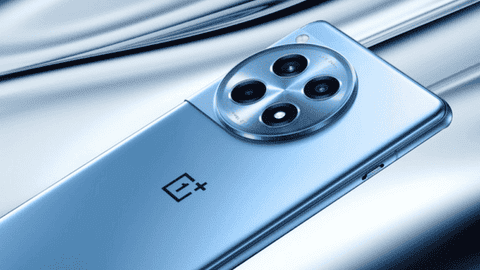The OnePlus 12R recently reached the North American and European stores. This was a new strategy, after all, the R-series was known for being exclusive to India. Now, however, more consumers can get their hands on this cost-effective flagship. Many buyers quickly ordered the phone due to its excellent specifications, but some ordered the 256GB variant only to see it doesn’t have UFS 4.0 storage. OnePlus is now allowing these consumers who feel at a loss to get a full refund if they are willing to return the smartphone.
Why OnePlus 12R Buyers Would Return their Smartphone with 256GB Storage?
To understand the situation, OnePlus was advertising that the 16 GB RAM and 256 GB Storage Trim of the OnePlus 12R was packing UFS 4.0 storage. However, the device was equipped with slower UFS 3.1 storage, and that info was later confirmed by OnePlus President and COO Kinder Liu. The executive now confirmed that all buyers of the 256GB storage OnePlus 12R are entitled to a full refund valid until March 16. You can see the quote below:
“If you’ve received a OnePlus 12R 256GB variant and want to discuss the situation with the file system type on your phone, please contact Customer Service through your usual channel. They will be able to discuss the next steps with you, up to and including a refund until 16th March 2024.
We’re still confident that OnePlus 12R lives up to the high expectations you have of our devices, and that you will love it when you try it. But I also hope that our quick action shows that we value our relationship with you, and our Community, and has helped restore your trust in us. – Kinder Liu, OnePlus President and COO.”
Those who bought a OnePlus 12R with UFS 3.1 storage and feel at a loss can get a refund. The buyer needs to contact OnePlus Customer Service. The process should be straightforward, though to keep in mind the limited-time return window is valid until March 16.
The Difference Between UFS 3.1 and UFS 4.0 Storage
To those unfamiliar, the UFS (Universal Flash Storage) is a type of flash storage technology commonly used in smartphones, tablets, and other mobile devices. Both UFS 3.1 and UFS 4.0 are standards developed by JEDEC (Joint Electron Device Engineering Council) for high-performance flash storage solutions. However, they offer different features and improvements. Here’s a comparison between UFS 3.1 and UFS 4.0. These points explain why users are feeling at a loss by mistakenly purchasing a smartphone advertised with UFS 4.0 storage.
- Speed: UFS 4.0 offers faster data transfer speeds compared to UFS 3.1. It achieves this through advancements in the interface technology, enabling higher read and write speeds. This results in quicker app launch times, faster file transfers, and smoother overall performance.
- Performance: UFS 4.0 typically provides better overall performance metrics compared to UFS 3.1. This includes faster random read and write speeds, lower latency, and improved multitasking capabilities. The enhanced performance can lead to a more responsive user experience, especially in demanding applications and tasks.
- Power Efficiency: UFS 4.0 introduces improvements in power efficiency, allowing devices to operate more efficiently and consume less power during data-intensive operations. This leads to better battery life and improved energy efficiency, which are crucial factors for mobile devices.
OnePlus 12R Feature Recap
Those who want UFS 4.0 storage will need to opt for the flagship OnePlus 12 which carries the latest standard. Despite this, the OnePlus 12R still stands as a decent offering. The device boasts the Qualcomm Snapdragon 8 Gen 2 with up to 16 GB of RAM. The flagship has a 6.78-inch AMOLED Screen with 2,780 x 1,264 pixels of resolution and Gorilla Glass Victus 2. There is a triple-camera setup with a 50 MP main camera with OIS. Furthermore, the phone has an 8 MP ultrawide shooter and a 2 MP macro camera. The phone has Wi-Fi 7, Bluetooth 5.3, NFC, and an under-screen fingerprint scanner. The device draws power with a 5,500 mAh battery with 100W wired charging.

